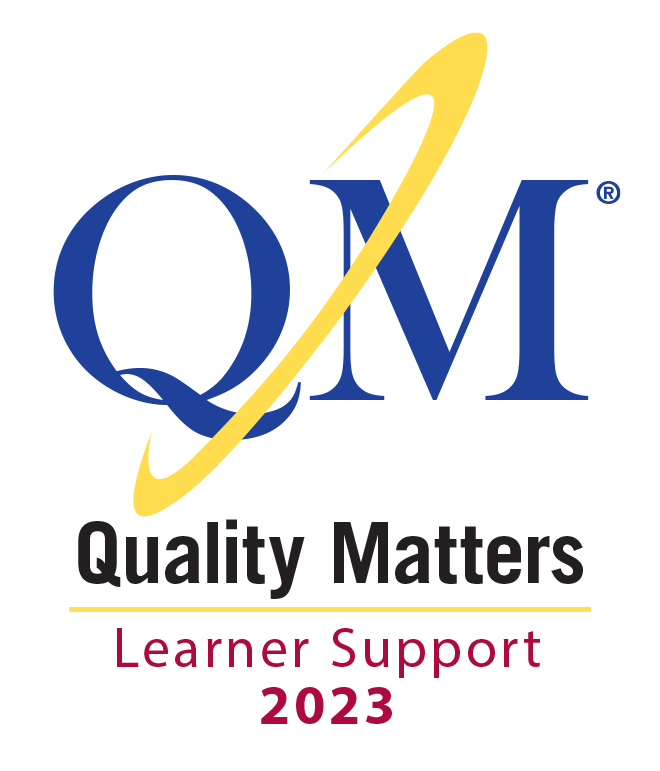Questions? Request Information
Degree Completion Journey
Students pursuing an information systems management degree will study substantive groundwork such as technology operations and strategic technology planning while developing fundamental understanding for more big-picture aspects within organizational operations. You will learn business ethics and data ethics, as well as different organizational management skills and change management.
To be awarded the Master of Information Systems Management degree, all students must complete 42 credits with a 3.0 minimum grade point average.
Students who have successfully completed undergraduate or graduate-level coursework in management information systems, information systems, or computer science with a grade of “B-” or higher within the past five (5) years will be exempt from ISM 500 Introduction to Management Information Systems.
Students who have successfully completed undergraduate or graduate-level coursework in computer programming with a grade of “B-” or higher within the past five (5) years or who have earned a certificate in computer programming/coding from a recognized non-traditional training provider (e.g. coding bootcamp, etc.) will be exempt from ISM 510 Introduction to Computer Programming for Business Applications.
Students who waive ISM 500 or ISM 510 are required to take 39 total program credits in order to meet graduation requirements. Students who waive ISM 500 and ISM 510 are required to take 36 total program credits in order to meet graduation requirements. If students are not eligible to waive ISM 500 and ISM 510, these courses must be taken as the first courses in the program.
This program is not designed to meet the state educational requirements for a specific professional license or certification in any state. Students seeking licensure or certification in a particular profession shall carefully research the requirements prior to enrollment and regularly review the requirements as they are subject to change. Requirements vary by state. The University of Arizona Global Campus does not guarantee that any professional organization will accept a graduate’s application to sit for any exam for the purpose of professional certification. Further, a criminal record may prevent an applicant from obtaining licensure, certification, or employment in their field of study.
Certain degree programs may not be available in all states.
The Online Teaching Support Certification recognizes programs that require all online faculty to undergo training in best practices for online course delivery, provide faculty with ongoing pedagogical support, encourage faculty professional development to increase their knowledge and skill in online teaching, emphasize instructor availability and feedback to learners, and collect and use feedback from learners to improve online teaching. Learn More

The Online Learner Support Certification recognizes programs that provide all the critical student and academic services needed for learner success and use learner feedback to continuously improve those services.

Customize Your Information Systems Management Degree with UAGC Specializations
Delve into other areas of information systems management with a specialization added to your master’s degree program. A specialization consists of three, three-credit courses. Choose from the following specializations:
-
Embrace your analytical side and enhance your degree with a specialization in Business Intelligence. You will learn to collaborate within the local environment to determine and implement the best business intelligence approaches, solutions, and measurements. These courses will teach you to appraise the current landscape of data applications and forecast their evolution, while communicating big data as a concept and its place in today’s business environment. Your specialization may require prerequisite course work. Please talk to your advisor for more information.
-
Become the go-to person on your team. With a specialization in IT Organizational Management and Leadership, you will be able to demonstrate how the theories, principles, and skills in information systems are integrated with business demands. Integrate knowledge, skills, and principles derived from the core course elements into the enterprise management of IT. Apply ethical and organizational leadership concepts to the management of enterprise IT. Your specialization may require prerequisite course work. Please talk to your advisor for more information.
-
Take the lead. Boost your confidence and career options with a Project Management specialization. You will be able to demonstrate an understanding of project management concepts and the ability to align information technology projects following organizational strategy. You will also learn to evaluate the impact of organizational strategy on information technology projects. Your specialization may require prerequisite course work. Please talk to your advisor for more information.
Careers Related to Master of Information Systems Management (MISM)


U.S. Department of Labor data regarding salary ranges and job growth projections are national in nature and do not guarantee employment, any specific salary, or job growth. Also, national long-term projections may not reflect local and/or short-term economic or job conditions. Top Skills are provided via Lightcast job postings data and may not align with UAGC program learning outcomes. UAGC programs are not designed to meet the state educational requirements for a specific professional license or certification in any state. UAGC does not guarantee employment placement, any specific salary from employment, or career advancement.
Meet Our Faculty
Other Degrees That May Interest You
Check out other degree programs that suit a variety of interests and may enhance a wide scope of career opportunities at UAGC. Discover similar programs to find the right path for you.








